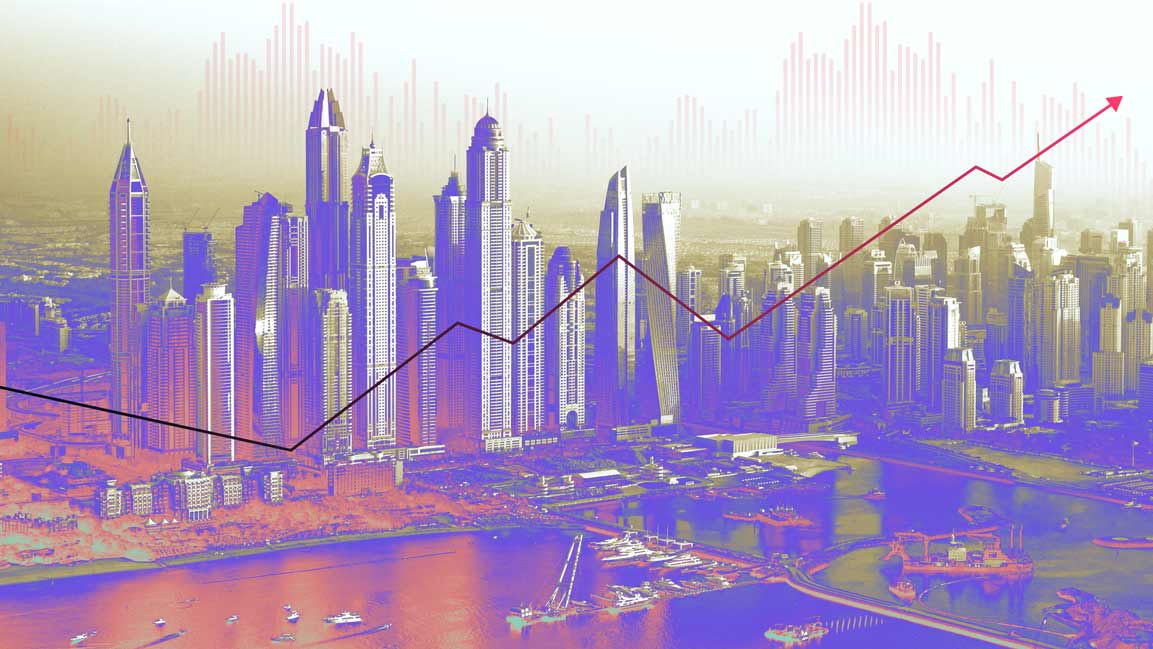- | 2:00 pm
Middle East economy is resilient amid oil cuts and geopolitical challenges
Growth in the non-oil sector is predicted to remain robust

The Middle East economy continues to be resilient despite roadblocks caused by oil cuts and geopolitical tensions.
According to PwC Middle East’s latest Economy Watch report, the non-oil sector growth is projected to stay robust, influenced by a strong non-oil GDP performance in 2023 and purchasing manager indices (PMI) in Saudi Arabia and UAE.
OPEC+ members have agreed to extend production cuts into Q2 2024, which will hurt the performance of oil GDP in Oman, Bahrain, and Saudi.
The kingdom has also paused plans to increase oil production capacity due to supply and demand dynamics. In the face of this move, capital for investment in alternative energy projects, including gas and renewable energy sources, will become more available.
Similarly, Qatar has announced ambitious plans for the expansion of its liquefied natural gas (LNG) capabilities, aligning with the appeal for gas compared to oil, especially given the lower carbon emissions associated with gas.
Richard Boxshall, Partner and Chief Economist, PwC Middle East, said, “Oil demand plays a key role in influencing the growth of oil-exporting Middle East countries. Nonetheless, strong growth in the non-oil sector is expected to counterbalance these impacts.”
The report further emphasizes the potential of green finance to hasten economic diversification and job creation across the region while also attracting Foreign Direct Investment (FDI.) This follows the success of COP28 and the introduction of green finance frameworks in the region.
One such example is that in 2023, the issuance of green bonds and sukuk in the Middle East doubled to $24 billion, led by the UAE and Saudi Arabia. This trend bleeds into 2024, with Oman publishing a Sustainable Finance Framework. Meanwhile, Qatar’s finance minister announced at Davos that its debut green bond would be coming soon. Saudi Arabia is also considering a sovereign green issuance in addition to the large sums raised by the PIF.
Stephen Anderson, Partner, Middle East Strategy Leader, PwC Middle East, said, “The region is increasingly focusing on sustainability, aligning with net zero ambitions and the imperative for economic diversification. The growth in green finance strongly indicates this focus and has the potential to enhance the region’s appeal to foreign investors.”
The Innovation By Design Summit is in Doha on April 24. Attendance at the summit is by invitation only. Delegates can register here to receive their exclusive invite.
































